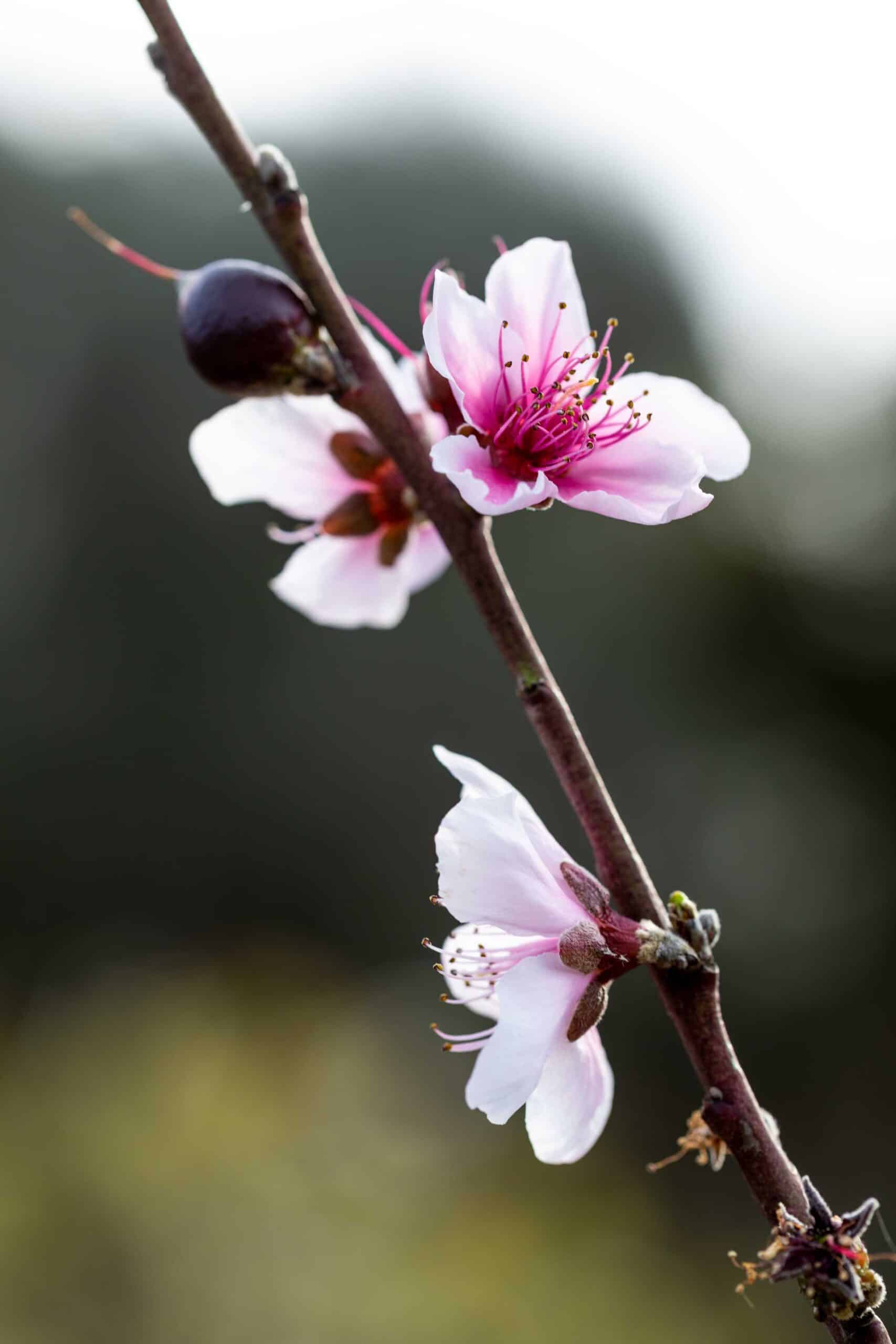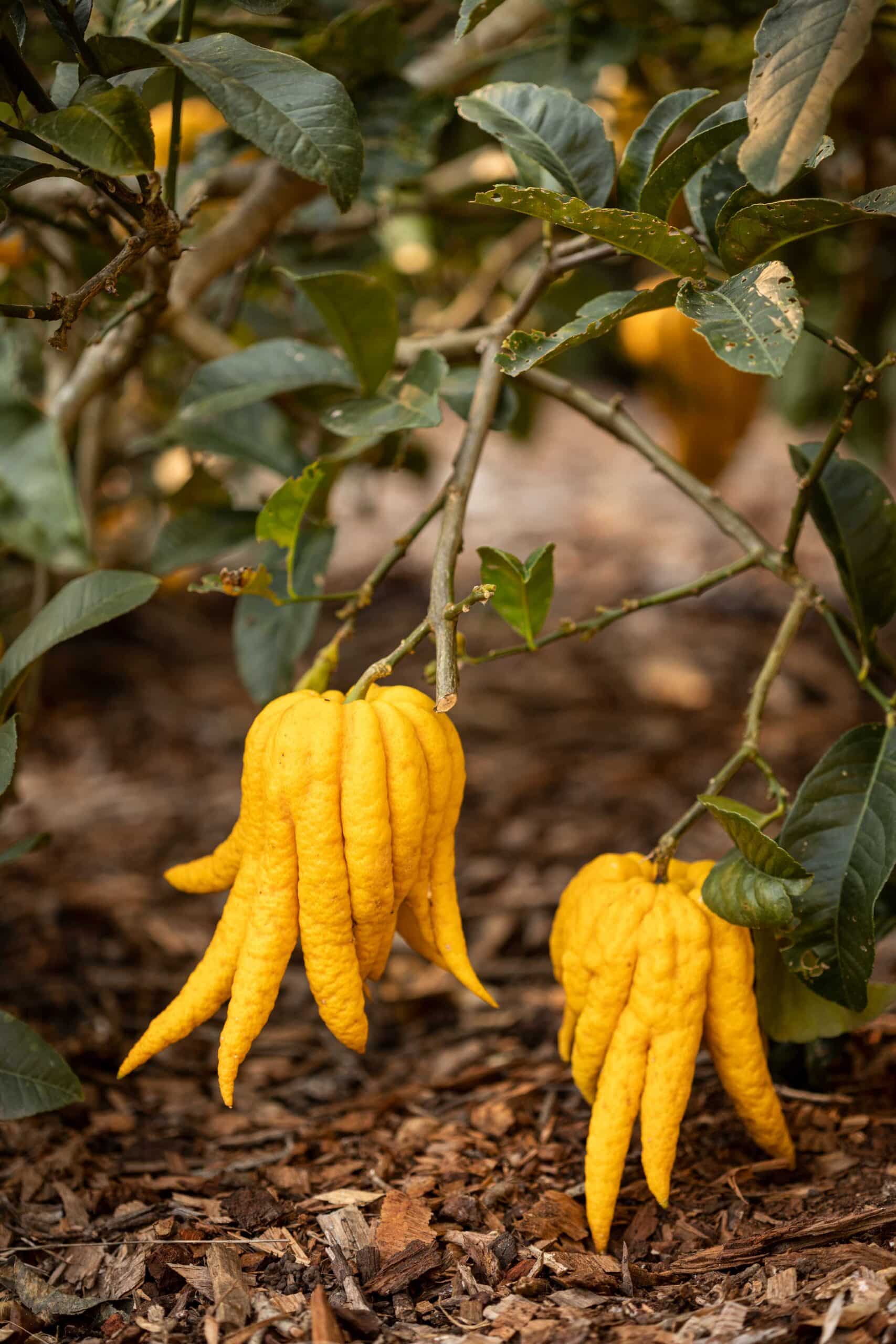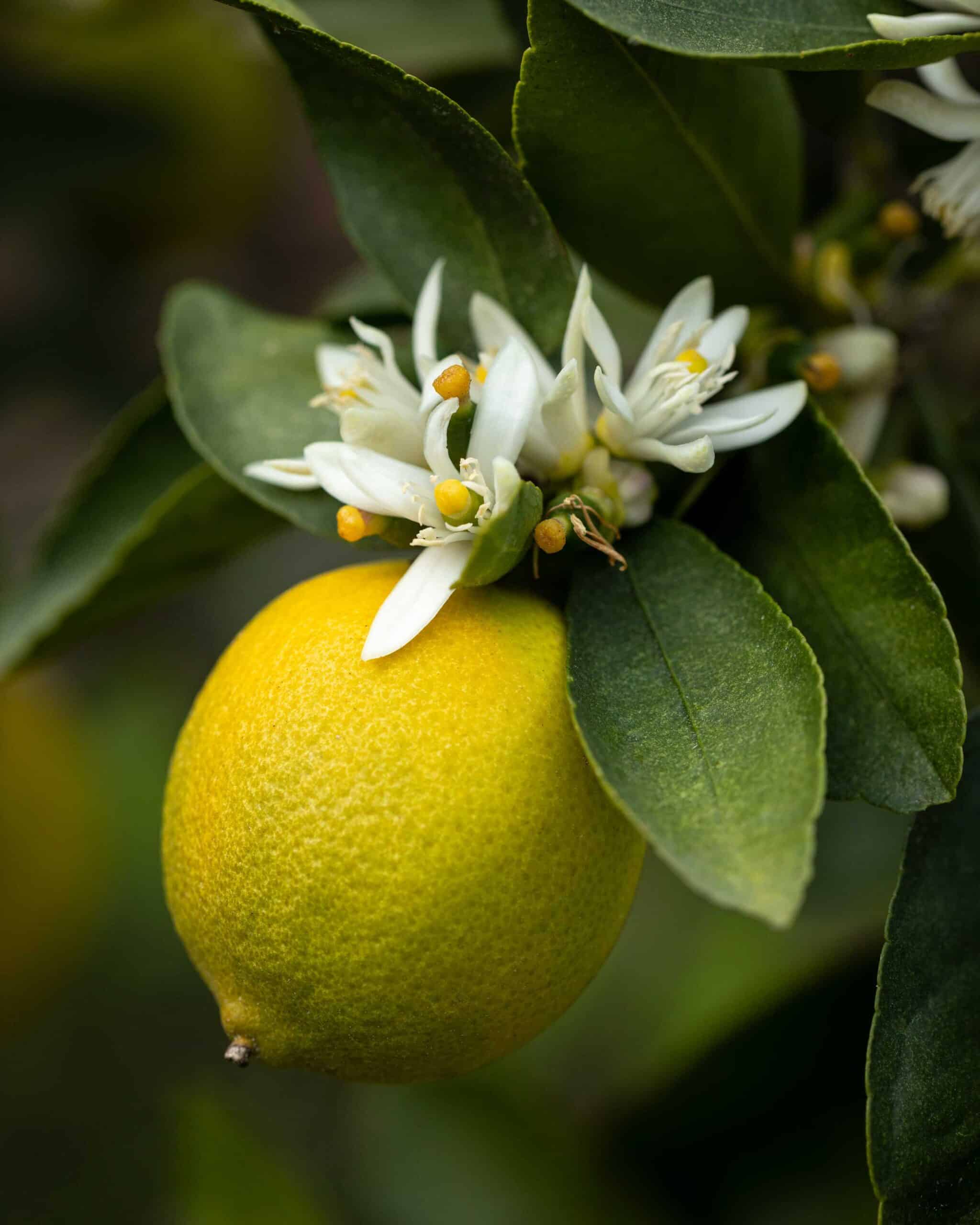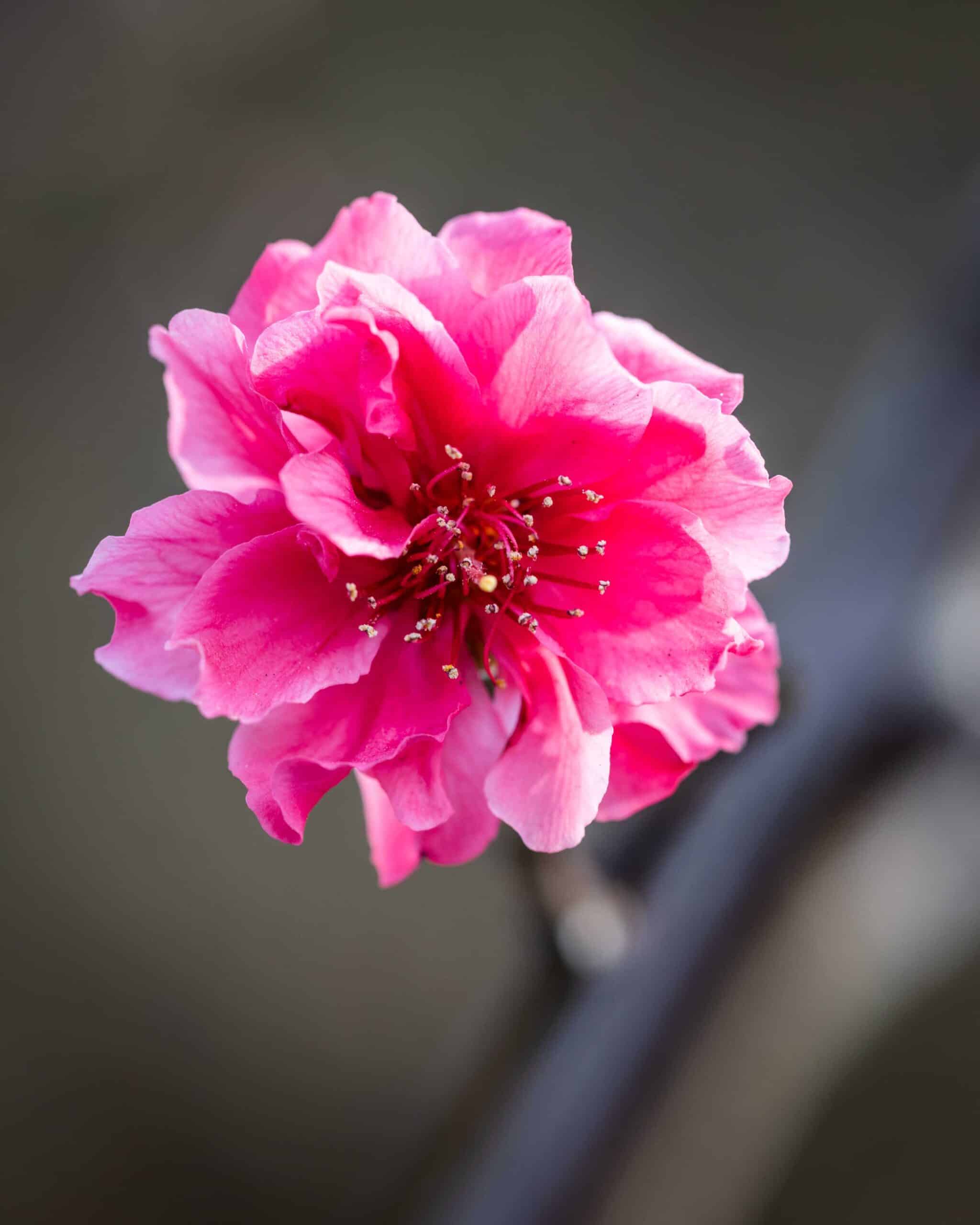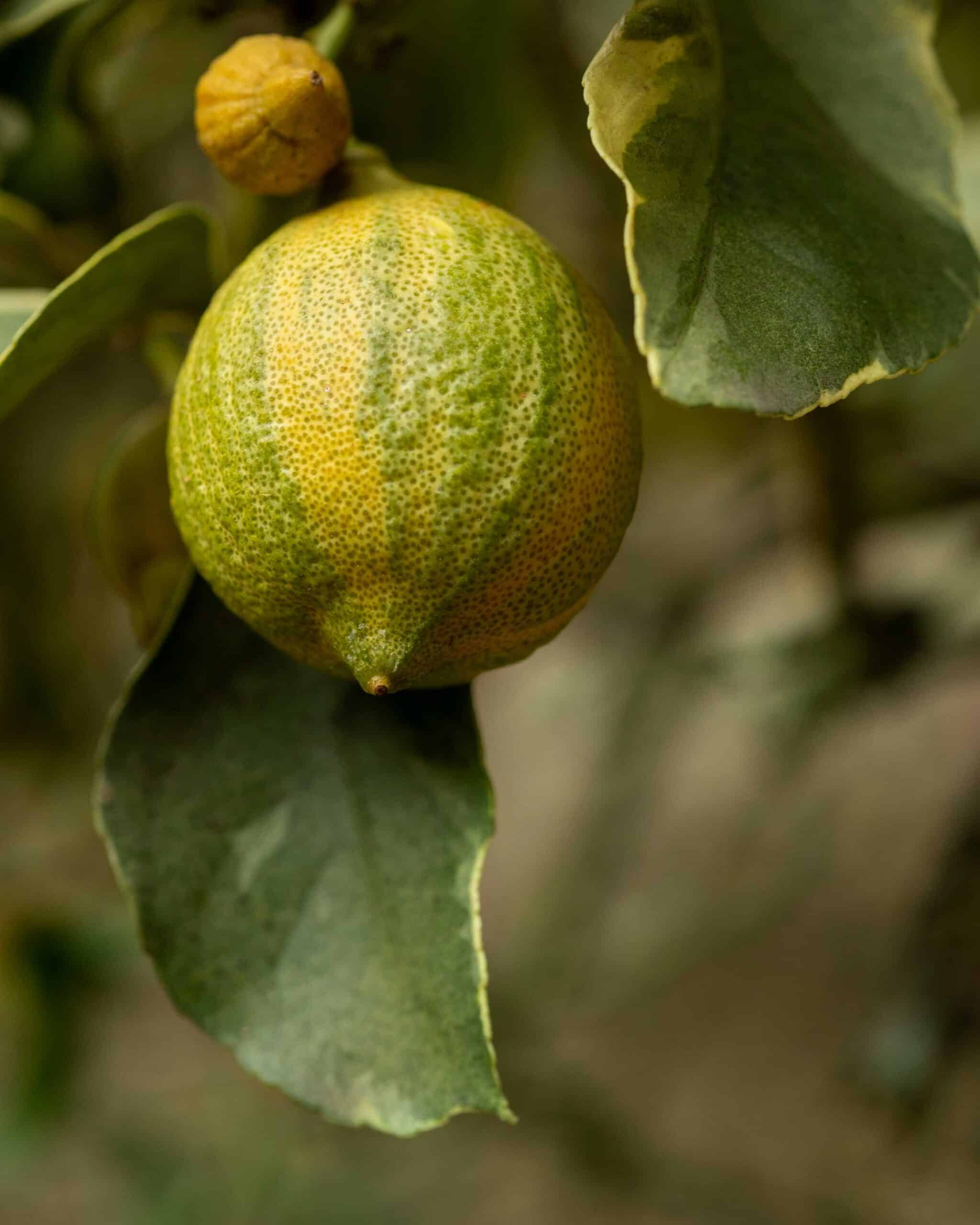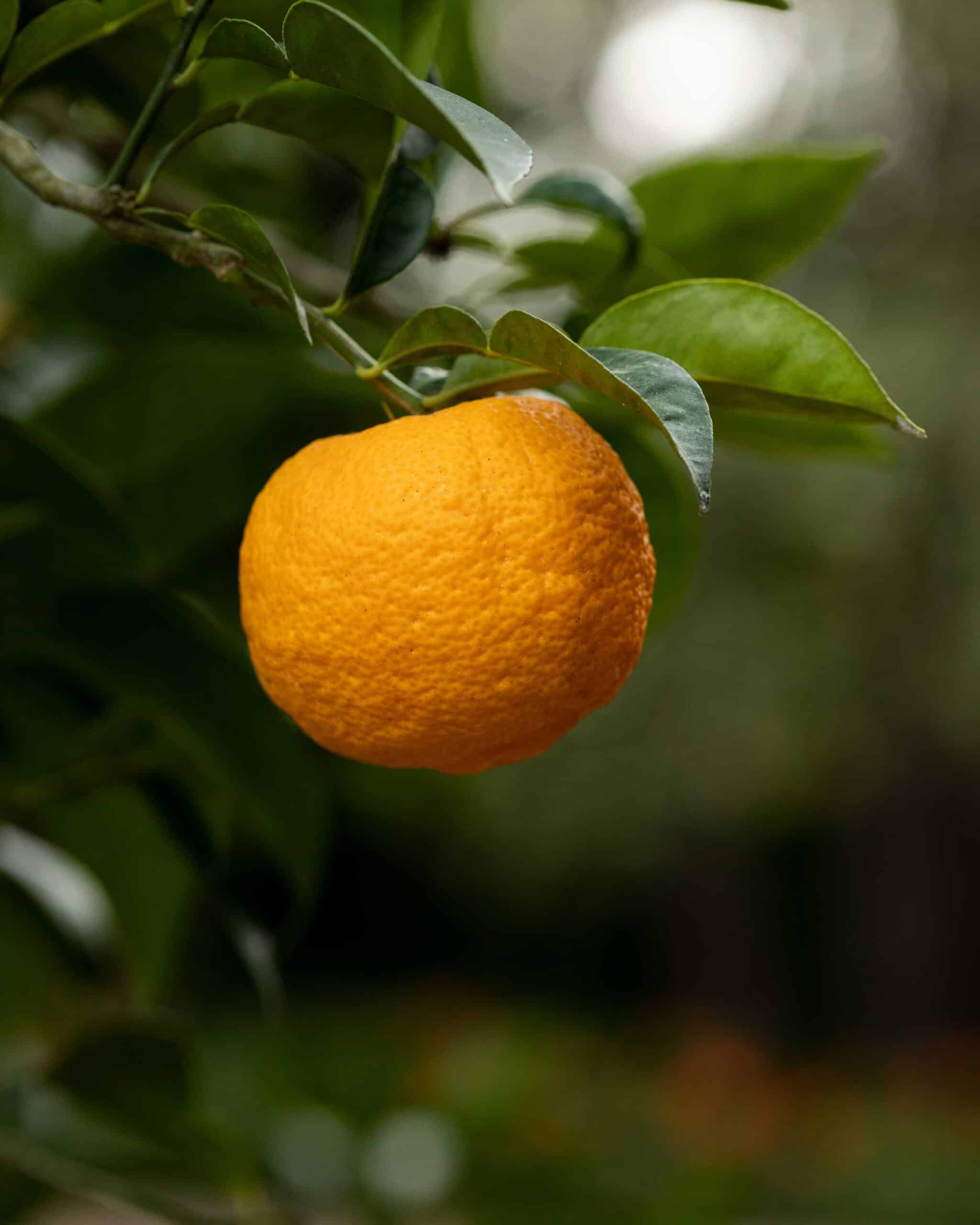Orchards
Madame Ganna Walska may have inherited an established orchard from the Gavit family, but she continued to add to it
Orchards
Madame Ganna Walska may have inherited an established orchard from the Gavit family, but she continued adding to it. As was her style, Madame Walska wanted one of everything, particularly exotic fruits such as papaya and cherimoya that she had learned to enjoy. Today, Lotusland houses around 160 fruit trees divided between Deciduous and Citrus Orchards. The Deciduous Orchard contains peach, plum, apple, pear, persimmon, and fig trees. Orange, lemon, lime, kumquat, grapefruit, and guava trees are planted in the Citrus Orchard.
the
Noteworthy
Features
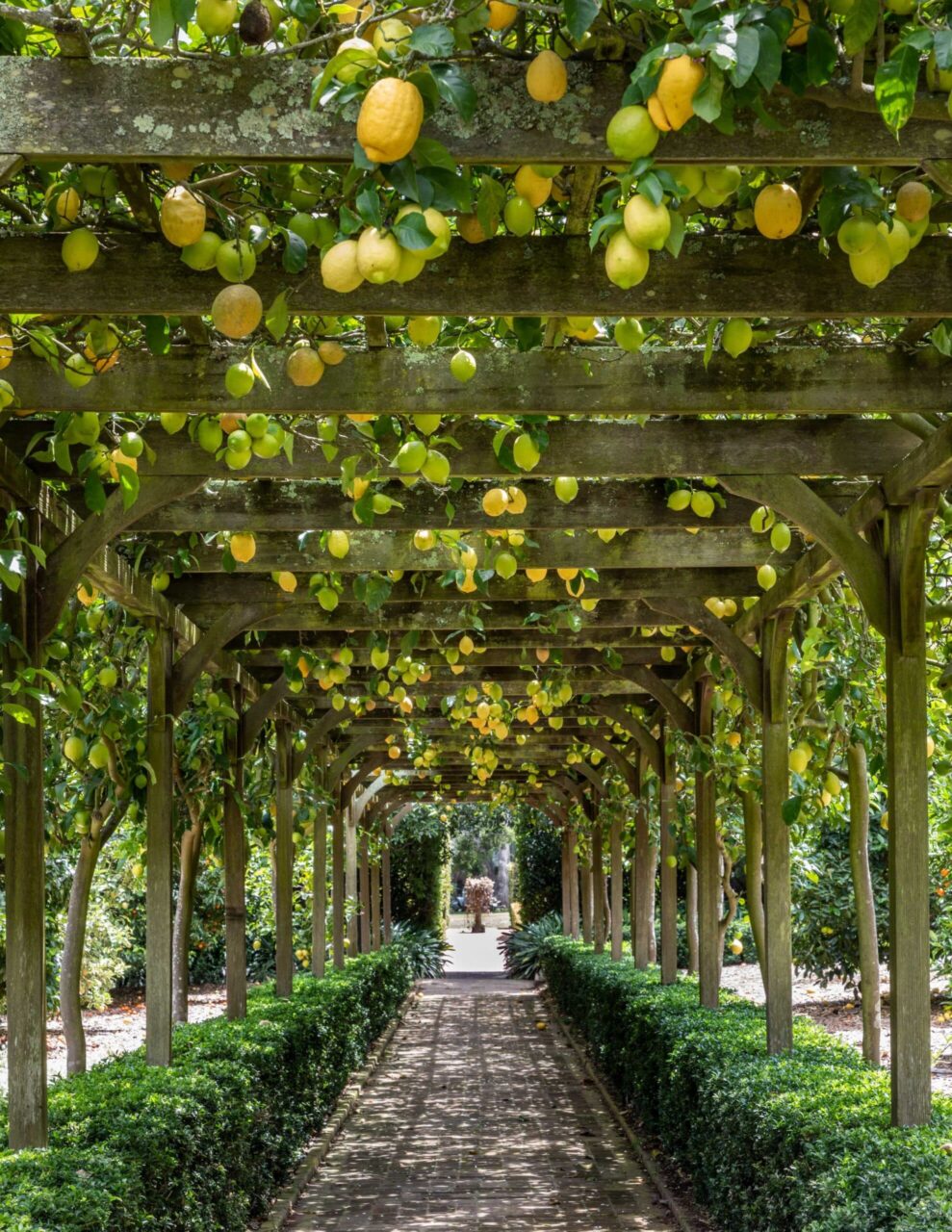
Lemon Arbor
The original arbor was created circa 1920s. It was replicated in 1988 with new Eureka lemon trees planted at each upright post, which have since been trained to cover the arbor.
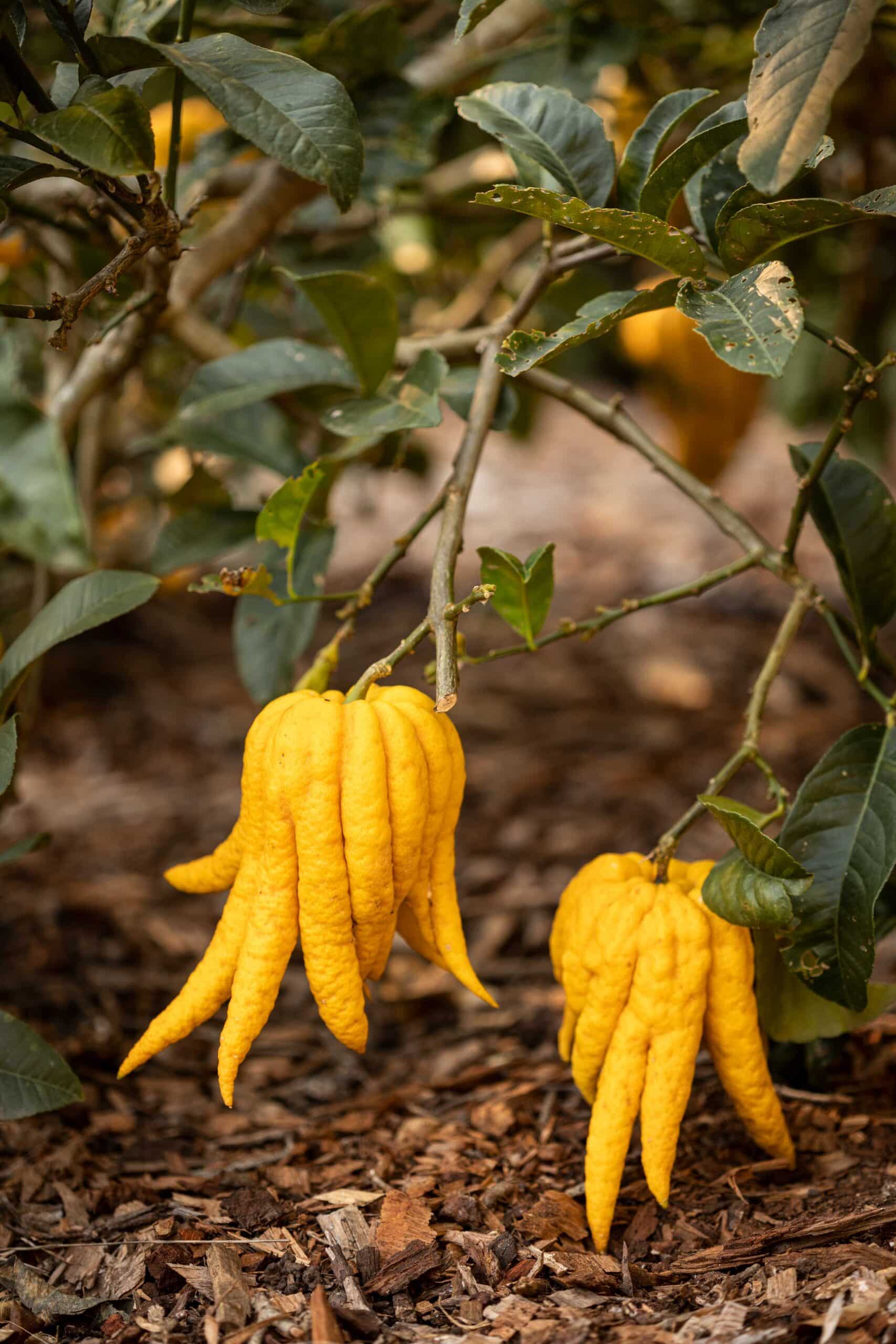
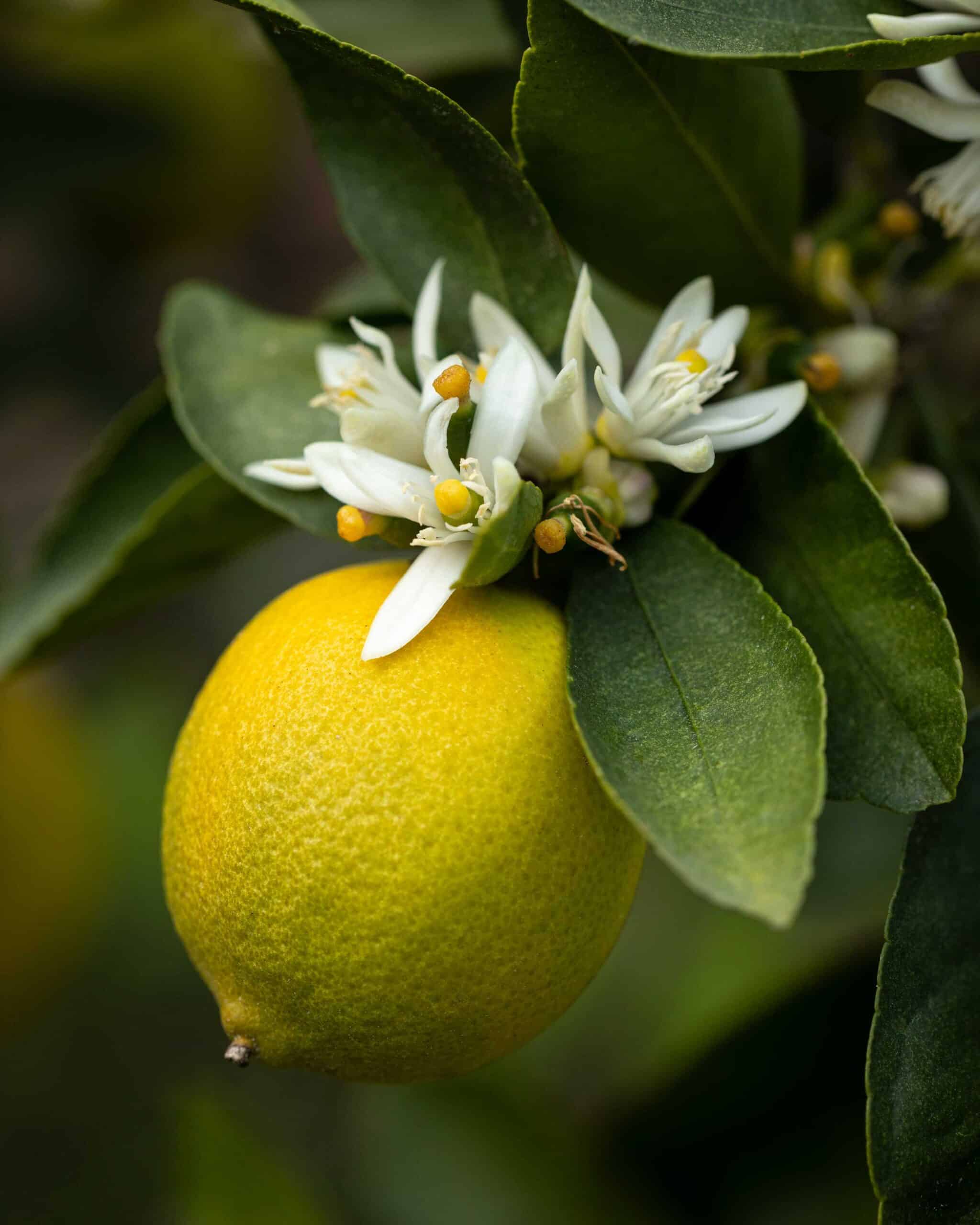
Notable Species
Citrus Orchard: Citrus medica ‘Buddah’s Hand’ (Buddah’s Hand citron), Citrus australasica (Australian finger lime), Fortunella margarita (kumquat), Citrus limon ‘Pink Lemonade’ (variegated lemon), Citrus junos (yuzu)
Deciduous Orchard: Prunus ‘Spice Zee’ (Spice Zee nectaplum), Prunus ‘Flavor Delight’ (Flavor Delight aprium), Malus domestica ‘Ghost’ (Ghost apple), Diospyros kaki ‘Hachiya’ and ‘Fuyu’ (persimmon), Ficus carica ‘Panache’ (Panache striped tiger fig), Pyrus pyrifolia ‘Nijisseiki’ (20th century Asian pear)
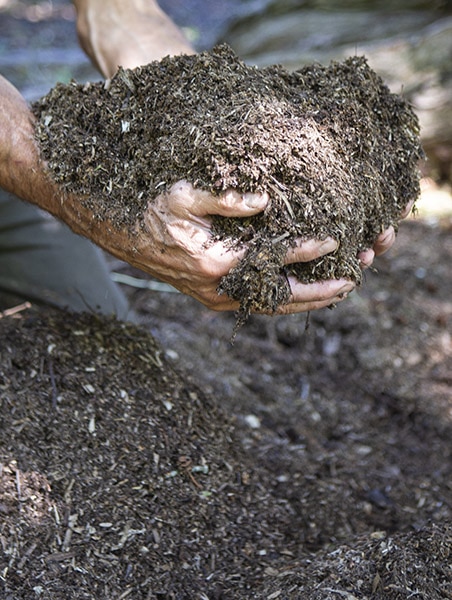
DID YOU KNOW?
Why mulch?
Like people, plants need certain nutrients to survive. Nature has amazing ways of cycling nutrients between plants, animals, and the land to be used and reused. When these cycles are disrupted, fertilizer is often added to the system, yet one way of working with nature is to mulch, where a thin layer is added to the surface of the soil. This simple practice helps to retain soil moisture and regulate temperature, both outcomes that keep organisms in the soil alive, promoting the natural cycling of nutrients. Lotusland’s Orchards are heavily mulched, to the point that an active biological system provides nutrient cycling — and no fertilizing is needed.


